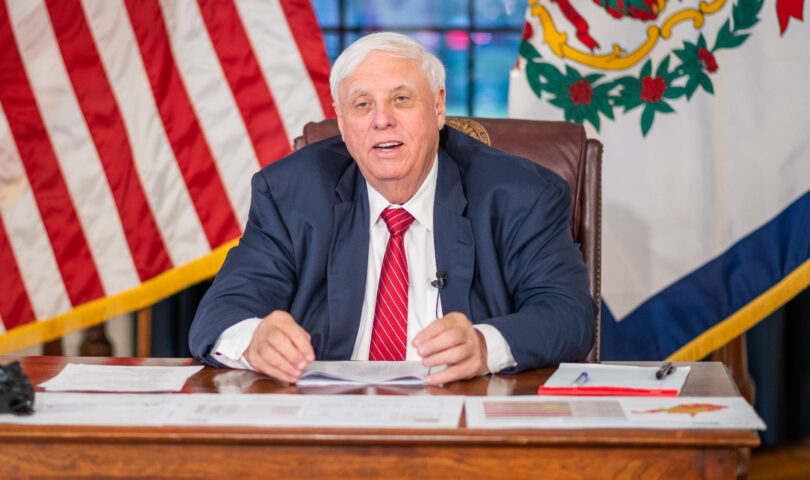MORGANTOWN — Gov. Jim Justice and his advisors held the last COVID-19 briefing before the Christmas holiday Thursday morning.
Justice took time early in the press conference to give an overview of how the state plans to spend its remaining $122 million in CARES Act funds. Roughly 15 organizations and state departments will receive money from the funds, ranging from $45 million for the nursing expansion announced Tuesday to $500,000 for light therapy research at Shepherd University.
When asked what could be done for existing nurses facing burnout and exhaustion, Justice pointed to the Save our Care program.
“We have pushed out a great deal of funding — $58 million — to hospitals through the Save our Care program … and we’re still looking at the staffing issue. We’re all competing against the same staff,“ said Department of Health and Human Services Secretary Bill Crouch.
He went on to say different organizations are not only competing against each other locally, but also with out-of-state entities that may pay more. The state is looking at various solutions, such as bringing students out of school quicker, deploying non-clinical National Guard, incentivizing nurses who took early retirement to return and ways to retain nurses.
“The problem in this pandemic early on was beds and availability of beds. We have beds. The problem is the availability of staff,” Crouch said.
Although omicron has yet to become prevalent in West Virginia, COVID czar Dr. Clay Marsh said that it took the variant just three weeks to become the dominant strain of COVID-19 in the country.
“One of the benefits West Virginia’s had for the entirety of this pandemic is we get a chance to look out at what’s happening in other places … to understand what’s coming to West Virginia. What we know is that hospitals are being stretched across the United States and across the world, not only with the omicron variant’s impact but with the delta variant’s impact, with influenza,” he said.
Joint Interagency Task Force Director James Hoyer renewed his warnings that the hospitalization of COVID patients will impact other West Virginians’ critical care, especially as critical care hubs like J.W. Ruby Memorial Hospital and Mon Health Medical Center reach capacity.
“Hospitalizations continue to be in the high range, and we continue to have a significant portion of those in the hospital in ICU and on ventilators, and once again today we surpassed that threshold that we try to stay below, of 60 admissions. Today’s admissions number was 68,” he said, while urging vaccination.
Hoyer announced that the U.S. Department of Health and Human Services will slow down antibody shipments to states because the treatment does not appear to be effective against omicron infections. He also announced West Virginia will receive 300 courses of Pfizer’s new COVID drug Paxlovid next week.
However, due to the complexity of the new drug, which was approved Wednesday, Hoyer and Marsh emphasized that it would be limited in its availability and implementation.
“The issue is there are a number of … medications that individuals take or medical conditions they may have that are going to prohibit a significant number of people from using this particular medication,” Hoyer said. “This is not going to be of significant benefit to us initially, and vaccines are still the most important opportunity we have.”
Marsh also discussed the imminent availability of another COVID treatment from Merck named Molnupiravir, which received FDA approval Thursday.
He finished his statements by highlighting the importance of vaccination and boosting for the eligible, and stressed the need for better masks such as N95s before wishing listeners a safe and happy holiday.
“It’s a really important time for us to really focus on being thankful for our gifts, but also protecting ourselves, our communities, our families, our hospitals in the state of West Virginia during this very sacred time.”
Tweet @SchulzReports




